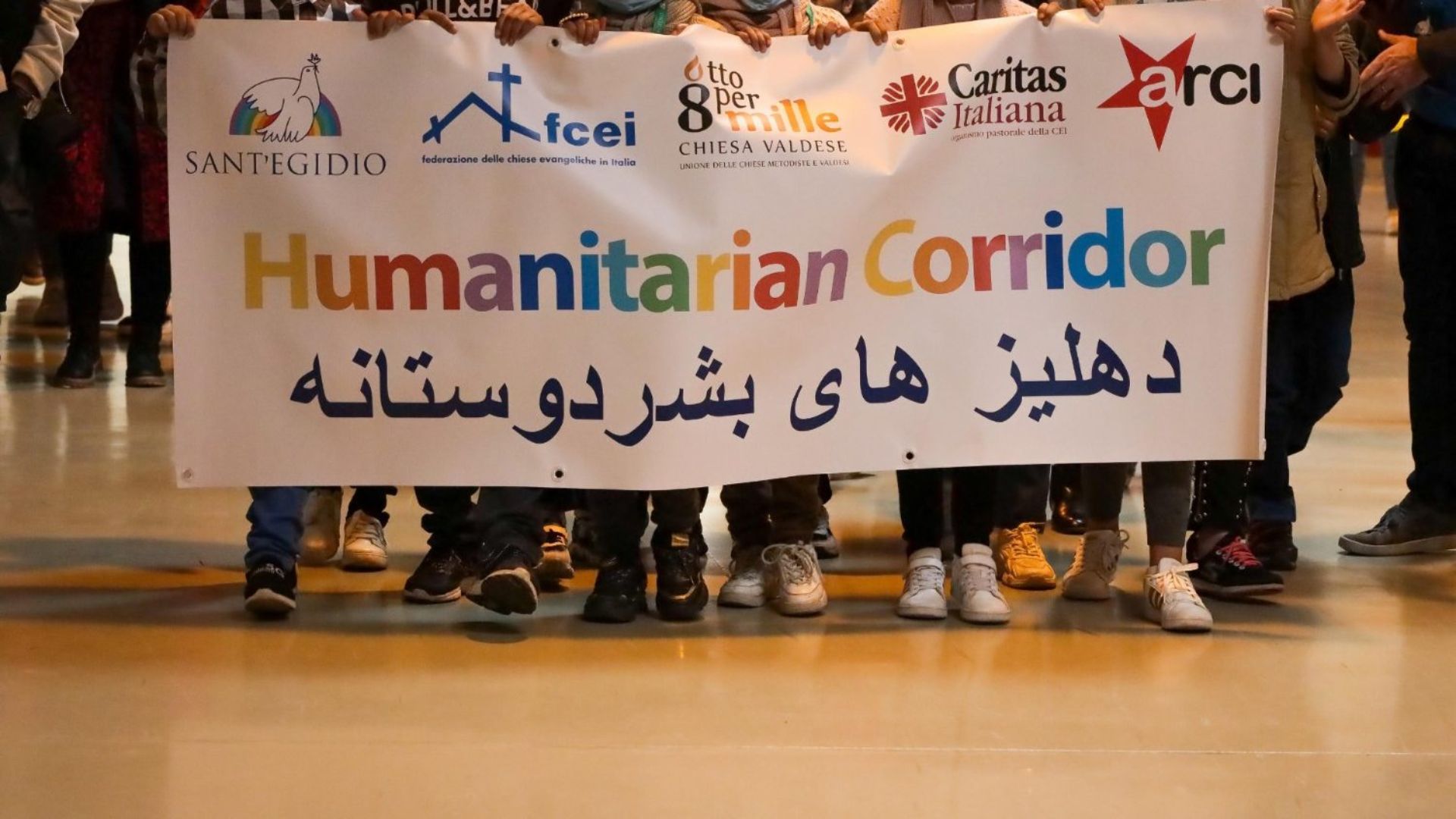Vatican City/Washington - Around a hundred refugees from Afghanistan arrive in Rome on Thursday, as part of the “Humanitarian Corridors” initiative, while the recent immigration crackdown announced by the Biden administration on Tuesday has sparked criticism from Catholic leaders along the U.S.-Mexico border.
Humanitarian Corridors
The “Humanitarian Corridors” is an initiative, organized by Italy’s Catholic and Evangelical Churches, the Italian government, the Community of Sant’Egidio, and other groups.

Around half of them will be in the care of Caritas Italiana, the charitable arm of the Italian Bishops Conference, and half will be looked after by the Federation of Evangelical Churches in Italy. One family will be taken in by the Community of Sant’Egidio.
Pope Francis has praised the initiative – which aims to bring refugees safely to Europe, removing the need for dangerous sea crossings – and called for it to become a model for refugee resettlement schemes. Asked whether she thought there had been any progress toward this goal, Stopponi replied:
“Well, I don't think there is progress. We think that they are a model, in a sense: instead of making these people travel for a long time and risk their lives in hands of criminals, this could be really a good way to bring people here that have the right to have asylum, because they are coming from a situation of war.”
Catholic leaders at border criticize Biden’s immigration crackdown
Dubbed by some as a "transit ban," the policy automatically denies asylum to migrants who cross the border illegally or cross other countries illegally to get to the U.S.
The policy is set to take effect on May 11, when the pandemic-era measure known as Title 42 is set to expire. Title 42, a public health order instituted by the Trump administration, barred entry to large numbers of migrants on the grounds of the COVID-19 health crisis.
Bishop Edward Weisenburger of Tucson, whose diocese covers large portions of the southern border, expressed his concerns about the new policy, stating, "I am deeply concerned about the announcement of Feb. 21 informing us that the Biden administration will further restrict immigrants from reasonable access to protections when fleeing violence."
Bishop Mark Seitz of El Paso also voiced his opposition to the policy, using the hashtag "#NoAsylumBan" in a tweet. He stated that he dreams of the day when "we can set political calculations aside and put in place a safe, humane, welcoming system to receive immigrants at the border - a system that respects the God-given rights and dignity of asylum seekers and all those forced to migrate."
Catholic leaders are urging the Biden administration to invest in policies that are in line with the efforts of local churches and reflect the Holy Father's invitation to integrate immigrants. They argue that policies that make life more difficult for vulnerable and at-risk individuals are not the solution, and a more compassionate approach is needed to address the complex issues surrounding immigration.
The new policy has reignited debates around immigration policies in the United States and has prompted calls for a more humane and fair approach to be taken. With the expiration of Title 42 looming, the Biden administration is under pressure to find a balance between protecting public health and safeguarding the rights and well-being of immigrants seeking asylum in the United States.